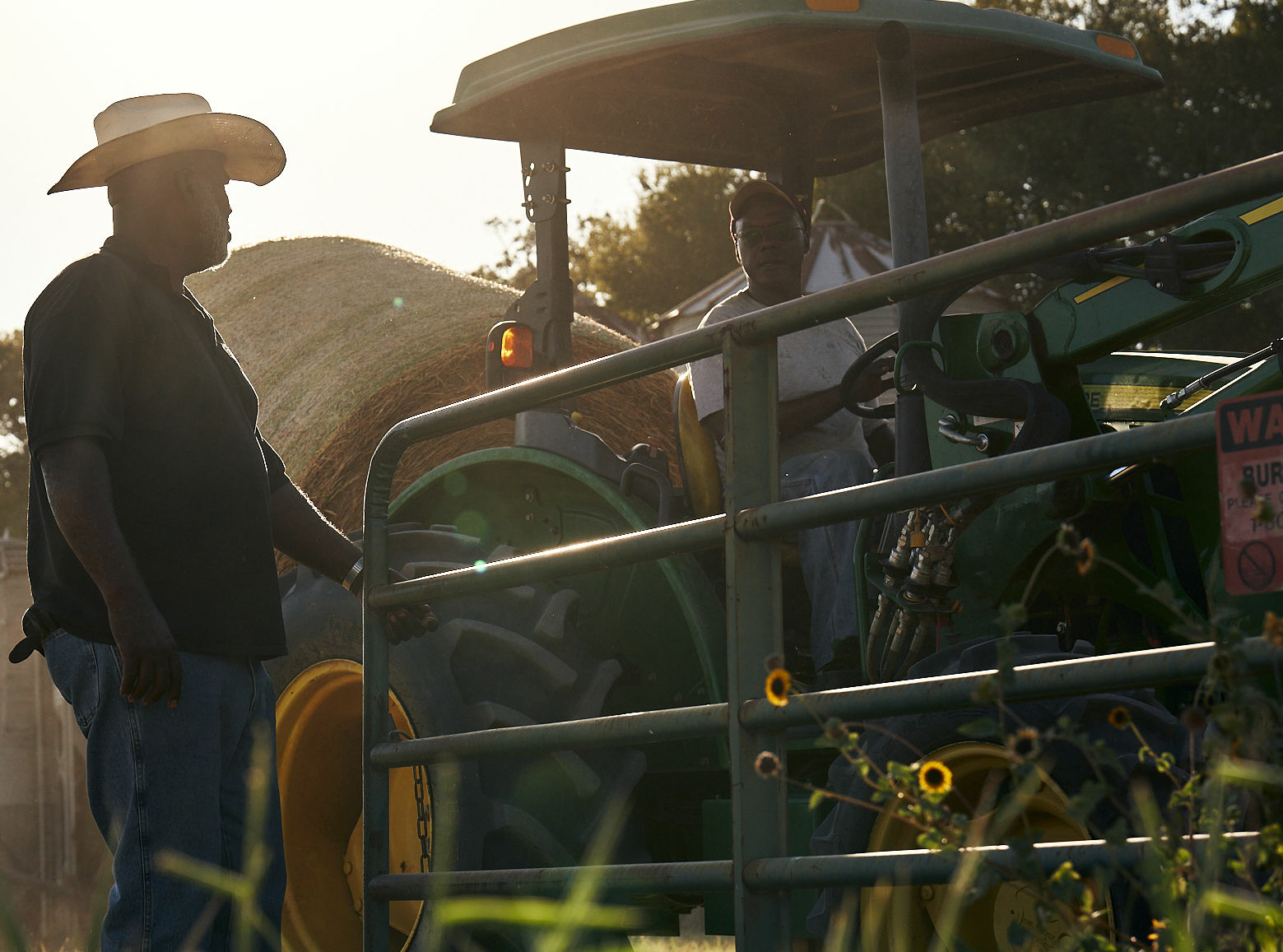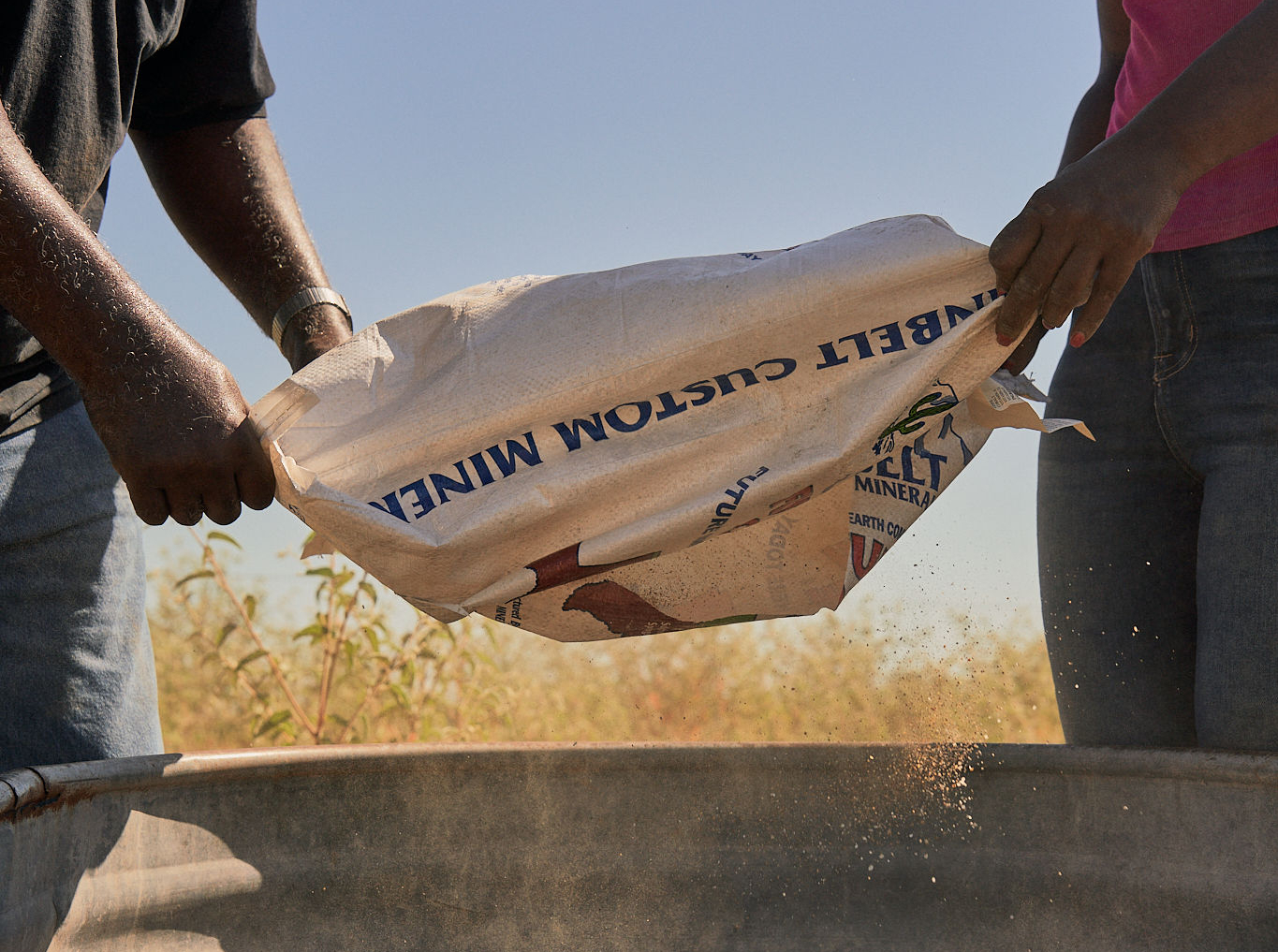As the first light of dawn breaks over Caney Creek Ranch, the vast expanse of land stretches out before me, a testament to the enduring spirit of agricultural communities in the great state of Texas. The morning dew on the grass, the distant lowing of cattle– these simple things remind me daily of the profound responsibility we hold to the land.
But beyond the boundaries of our ranch, I also see a landscape of challenges facing small farmers and ranchers, especially those from minority communities. From limited access to capital to the persistent effects of historical inequities, the hurdles for many are formidable. Yet, in these challenges, there are also opportunities: to reshape the narrative of American farming, to push for greater inclusivity, and to ensure that the future of agriculture reflects the rich diversity of our nation.
This is why I've dedicated myself to advocacy in this field and to amplifying the voices of those who have been historically underrepresented. In addition to preserving our way of life, I want to nurture a vital industry that feeds our nation, sustains our rural communities, and holds the key to addressing some of our most pressing environmental challenges. Doing so is not only essential to the continuation of our agricultural heritage but also for a future in which every rancher has the opportunity to thrive.
Championing Minority Farmers
Two of the organizations at the forefront of addressing long-standing inequities in agriculture are the USDA Minority Farm Advisory Committee and the Socially Disadvantaged Farmers and Ranchers Policy Board. But why are their efforts so crucial?
Historically, minority farmers have been systematically excluded from USDA programs, leading to a dramatic decline in land ownership and economic opportunity. For instance, according to the Department of Agriculture’s Census, Black-owned farms have decreased by 12.72% from 32,910 in 2017 to 28,273 in 2022. This loss represents economic hardship for individual families and a diminishment of diverse perspectives and practices–particularly to land management and crop diversity–in our agricultural system.
Through my involvement with both of these groups, I work to shape policies that directly address these inequities. We advocate for reforms in USDA loan processes, push for increased outreach to underserved communities, and strive to create programs that specifically target the needs of minority farmers. Our goal is not just to right historical wrongs, but to tap into the innovative potential of diverse farmers. By ensuring their voices are heard in policy discussions, we're not only promoting equity but also fostering innovation that can benefit the entire agricultural sector.
Supporting Small Farms Through Advocacy
Small, family-run farms form the foundation of rural America, yet they face increasing pressure from market consolidation and industrial agriculture. My work with the Independent Cattlemen's Association (ICA) and the Capital Farm Credit Advisory Committee directly addresses these challenges.
The ICA, where I serve as a board member and treasurer, has been representing cattlemen since 1974. Our mission is crucial: to provide an effective legislative voice for farmers and ranchers. The cattle industry faces numerous challenges that can disproportionately affect small, family-owned operations, which is why we focus on promoting changes that support the efforts and well-being of cattlemen while opposing policies that could hinder the industry's progress.
We work tirelessly to advocate for the rights and interests of independent cattlemen, which directly impacts our members' livelihoods. Our efforts focus on key issues such as fair market practices, reasonable regulations, and the protection of private property rights. We push for stronger eminent domain laws to safeguard landowners' rights – a critical issue for many small farmers and ranchers who may face pressure from larger entities or government projects. By educating policymakers and the public about the challenges and importance of independent cattle operations, we aim to create an environment where small-scale producers can thrive and contribute to a diverse, resilient agricultural sector.
While our advocacy efforts are crucial for today's cattlemen, we recognize that the future of our industry depends on nurturing the next generation of ranchers and farmers. That's why we also place a strong emphasis on youth involvement in the cattle industry, which is vital for ensuring the long-term sustainability of small farms and ranches. By nurturing young people's interest in agriculture, we're ensuring that a new generation of farmers and ranchers will be prepared to carry on this vital work. Our commitment to youth involvement helps maintain the values and practices that have made independent cattle operations the backbone of rural America, while also securing a vibrant future for our industry.
However, supporting the next generation of farmers isn't just about education and encouragement–it's also about ensuring they have the financial tools to succeed. This is where my work with the Capital Farm Credit Advisory Committee comes into play. Through my position on their committee, I've also been able to address the critical issue of access to credit for small farms and ensure that family farms have the financial resources they need to weather tough times and invest in their futures.
Building Sustainable Communities
Another huge factor intimately tied to the health of rural communities is the agricultural policy which governs our work.
As a member of the local water board in Texas, where drought is an ever-present threat, I play a crucial role in advocating for the implementation of appropriate, efficient, and sustainable water use for ranchers. Our work involves ensuring the fair division of adequate water for the needs of all ranchers, which becomes especially critical during drought conditions. We develop and implement strategies for managing water resources during these challenging periods, balancing the needs of agriculture with environmental conservation. Our push for policies that encourage water conservation and fair allocation works to ensure the long-term viability of agriculture in our region. This effort maintains the economic base of entire communities, making sustainable water use both an environmental issue and an existential one for many farms and ranches.
The Ratcliff Community Base Organization (CBO) represents another facet of this community-focused approach. By providing education and resources to Black producers and rural youth, we address immediate needs while investing in the future of agriculture. This work is crucial because vibrant rural communities need a new generation of farmers equipped to face 21st-century challenges.
Future-Forward Leadership
As I look to the future, I'm more convinced than ever of the importance of engaged agricultural leadership. The challenges facing our industry—from climate change to market volatility—require leaders who understand the lived complexities of modern farming and can advocate effectively for the needs of all producers, especially those who have been historically underrepresented.
Truthfully, the future of farming depends on all of us working together to create a more inclusive, sustainable, and prosperous agricultural sector. I encourage you to learn more about the challenges facing small and minority farmers in your area, and to use your voice to support policies that promote equity and sustainability in agriculture. Together, we can ensure that the rich tradition of American agriculture continues to thrive for generations to come.



